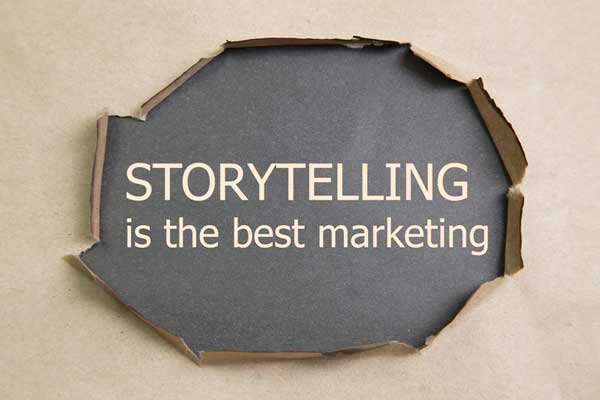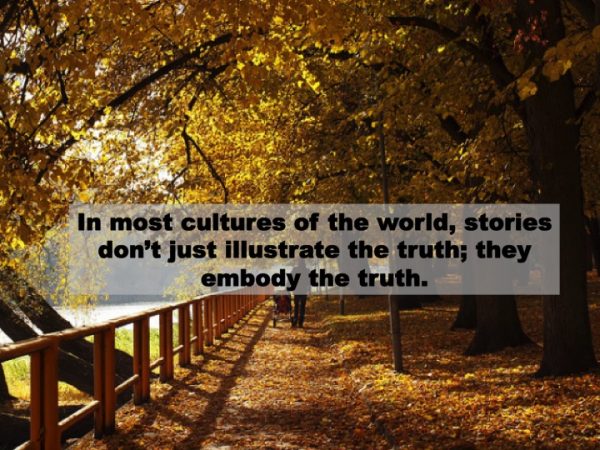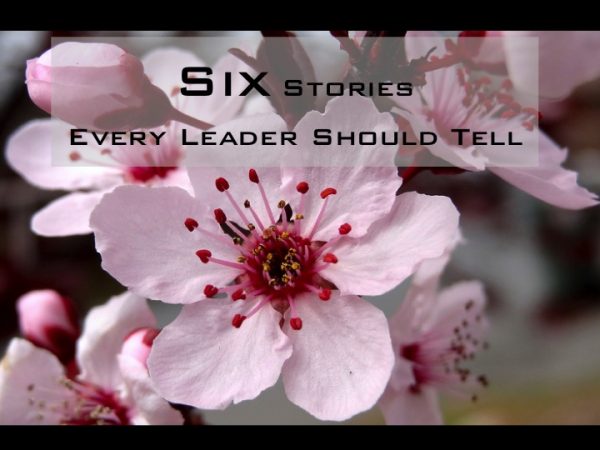Organizations in virtually every sector have access to data that can offer an advantage for developing new products, helping coworkers reach their potential, and improving customer experience. Companies on average manage three times more data than they did five years ago. Many organizational leaders devote valuable time diving into these pools of data searching for patterns, problems, or potential opportunities. This analytical work can be energizing when it reveals nuggets of information to gain a competitive edge. But leaders who know how to communicate their relevant data through a story structure have better odds of convincing others to take action.
Read moreThe organization I lead generates a bunch of data. We provide leadership development in under-resourced populations, so we have data about the number of leaders that are engaged in our programs. We have data about the number of events we conduct each quarter. We have cool data about the impact of our services on leaders. But when we began telling “Jairus’ story” to our stakeholders, the data has found a voice.
Read moreWhen we encounter Jesus in the New Testament we tend to view him through the lens of him as our Savior and Lord, the long awaited Promised One. But how often do we view him through the lens of Jesus the Master Communicator?
Read moreMarketing specialists tend to confuse me. Their discipline is often made to seem impossibly complex. Is there a simpler way to promote our brand? One branding expert says “Yes!” He believes our most powerful marketing tool is our own story. So we’ve given it a try. In Building a StoryBrand, Donald Miller provides the basic building blocks of a good marketing story.1 He wrote, “Here is nearly every story you see or hear in a nutshell: a CHARACTER who wants something encounters a PROBLEM before they can get it. At the peak of their despair, a GUIDE steps into their lives, gives them a PLAN and calls them to ACTION. That action helps them avoid FAILURE and ends in a SUCCESS.” This kind of story helps our customers not to burn too many calories in an effort to understand o ur product.
Read moreMarketing is not my expertise. Every day solicitors come knocking via my inbox with the marketing “offer you just can’t refuse.” While I don’t know much about their complex discipline, I do know our small organization does not have money to waste. I get heartburn when other leaders spend precious dollars on marketing efforts only to get little or no results. And when they do receive the final reports, they wonder what went wrong, or worse, whether their product is really any good at all. But what if the problem isn’t the product? What if the problem is the way we talk about the product? Can we make marketing simpler?
Read moreOriginally Posted in October 2017 by Evangelical Missions Quarterly (EMQ) —Reviewed by Benjamin Espinoza, PhD student, Michigan State University. Story has become a topic of interest for many scholars, pastors, and missionaries. As Christians, we are called to be participants in the greatest story of all time, the gospel. Rick Sessoms estimates that eighty percent of the world’s people are “story-centric learners,” meaning they learn through storytelling (drama, art, music, etc.). This provides a unique opportunity for us to ponder how we can take the gospel to the ends of the earth using story-based methods and leadership approaches. Sessoms has written an insightful volume on story-centric, Christ-centered leadership which will equip a new generation of Christian leaders to share the greatest story of all time.
Read moreThe Story of Rev. Gupta Rev. Gupta was a well-loved pastor in his rural community for many years. He brought together his friends Raju and Geeta to help build the church and these people became life long friends. The community was being reached with the gospel, people were being baptized every week, and the church was growing. Rev. Gupta was able to get further study in a neighboring city. As the church started to expand and new ministries were being added, several things began to happen. Raju and Geeta were concerned by the changes they were seeing in Rev. Gupta (or, rather, as he now wanted to be referred to as Dr. Gupta). As the ministry grew under Dr. Gupta’s leadership, he was invited to travel and teach and, in the process, became a sought-after conference speaker. It wasn’t long, however, before the early signs of “big boss sickness” began to appear. He began to take control of every aspect of the ministry. In some ways he had become the traditional power leader like some of his contemporaries. He had started well, but he was finishing poorly. For many of us, this story is all too real. We could probably identify a “Rev. Gupta” in our lives. Or maybe we have been “Rev. Gupta” in our own stories. If we leave it at this, though, how much is the story really impacting us? We catalog it away and move on to the next story. Storytelling Comes With Questions The use of storytelling
Read moreUsing Stories to Communicate A recent group conversation was about about the use of stories to communicate truth. One person in the group said, “No way. We cannot entrust truth to be communicated through a story. We must convey facts and principles and concepts.” This statement comes from common myths and misunderstandings that prevent many people from viewing story as a viable means of communicating truth. When you mention the word “story,” many people think of nursery tales or the kiddy corner of a bookstore. Stories are perceived as “just for fun” and are often relegated to children’s bedtime or elementary school.
Read more“Worldview” is a collection of assumptions people hold about the world they live in and their place in it. More specifically, our worldview can be defined as a set of subconscious mental images that guides what we believe to be real, what we perceive to be important, and how we behave toward others. So how does a person’s worldview form? And how can one’s worldview change?
Read moreAnnette Simmons’ Whoever Tells the Best Story Wins is the latest in a string of recent books that advance the lesson that Wicked demonstrates: stories have powerful potential to shape people.
Read moreMinistry leaders from several African nations recently told me that story plays a vital role both in shaping and in preserving their cultures. Like all communities, most of their shared core beliefs are passed from generation to generation through true stories, myths, and songs. These narratives embody the essence of what they view as important to their children and grandchildren. Even as they welcome education that brings socio-economic advancement, these leaders are concerned that they avoid the mistake of teaching their succeeding generations with a literate, conceptual approach that disconnects them from their own story.
Read moreThis month Hollywood is releasing a movie loosely based on the story of Noah. Muslims are complaining because it isn’t true to the Koran. Christians are complaining because it isn’t true to the biblical text. And other people are complaining because they wish it wasn’t Russell Crowe who was cast as the leading role. Fair enough. But let’s keep our minds open just a tad. Open enough to encourage dialogue instead of dismissing the movie altogether just because we think it’s just another Hollywood attempt that completely gets the facts wrong. There is power in storycentric communication– even when it is Hollywood’s version.
Read more









